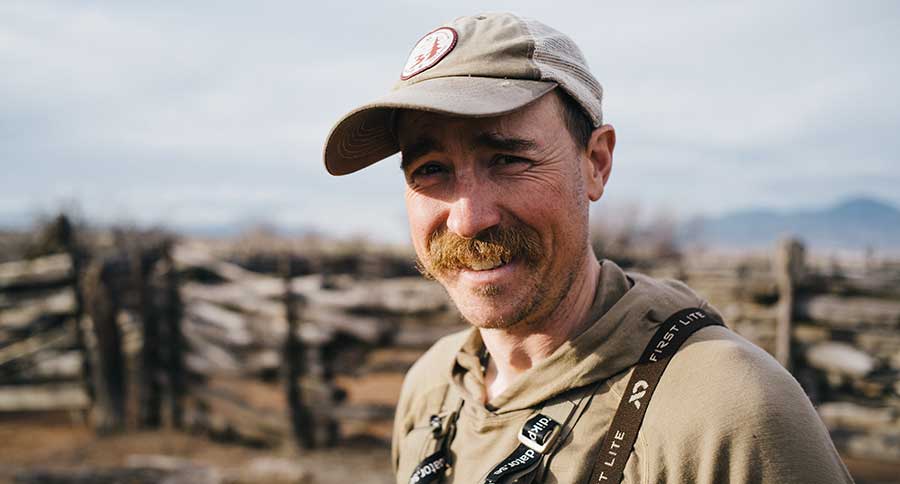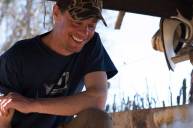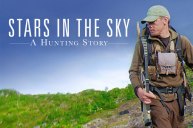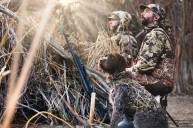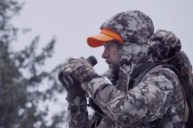What does the Director of Conservation for MeatEater do, exactly? We talked with Ryan Callaghan to find out.
You've got to give it up to Ryan Callaghan. He knows how to align his priorities and make the most out of being a modern, 21st century sportsman.
But he also knows what's worth fighting for, and preserving for years to come.
We had hopes of finding out what made him fit so well in his still-new role at one of the most impactful outdoor media companies there is. After our interview, it was crystal clear.
Having a conversation with Ryan Callaghan is like opening a guidebook to the outdoors. It's not hyperbole; the guy in so knowledgeable, and consistently soaking up new stuff, that it's no wonder Steve Rinella and the MeatEater brand wanted him to be a part of what they were doing.
He already was a big part, appearing in numerous episodes of the hunting TV show that put MeatEater on the map, and generally chumming around with Rinella and friends on their endless outdoor adventures. But as the company grew, a need for a spokesperson fronting an influential movement within the conservation playing field was made clear.

The hunting community was increasingly looking to MeatEater as a voice to bridge the gap and conduct the conversation, and Callaghan was as perfect for the job as anyone could be.
He grew up guiding and fishing in the western United States, broadened his horizons as an outdoorsman, and developed a knack for knowing what would work and what wouldn't, from gear to strategy to resource management. That translated to a gig with First Lite, the hunting apparel company, and a wider relationship with the professional outdoor industry.
It all helped prepare his for what he's facing now, in a role he is enjoying.
"It's a communication job," he said. "We'll have a lot of people write in about an issue, saying 'Well, this does this. Doesn't that make us all mad?!' I guess the surprising part is that I get a lot of opportunities to educate myself a lot more. Which is really great, it's a fantastic part of the job. We have a huge network at this point for bringing local issues and incidences and saying 'This is happening, is this right? Is this legal or immoral? What do you guys think of this?' It gives me the opportunity to dig in and look at some interesting topics and cases, and [hear the] discussions that are happening out there."
One of the latest issues that peaked his interest involved the fact that feral cats are the biggest detriment to native birds, killing 2.4 billion a year in the U.S. (and a similar number in Canada). That, transposed with the idea that wildlife protection organizations are opposing all large cat hunting in certain parts of North America, is just a taste of what gets Ryan scratching his head.
As Director of Conservation, Callaghan is in a way obligated to take a stance, or at least have some significant thoughts, on a variety of subjects. We probed a bit, and learned his feelings on CWD ("There's nothing wrong with knowing more about it."), big cat hunting (it's the domestic kitties he's more worried about), and the recruitment of new hunters and anglers.
It was with Chronic Wasting Disease that he shared his own experience, having hunted in parts of Idaho known to be infected. He's harvested deer and not kept the neck meat, which he said makes a mean roast and is some of the best meat to be had on a hoofed animal. It's the sort of thing that's actually changed what he packs out and what he doesn't, "So that's a bummer," he said.
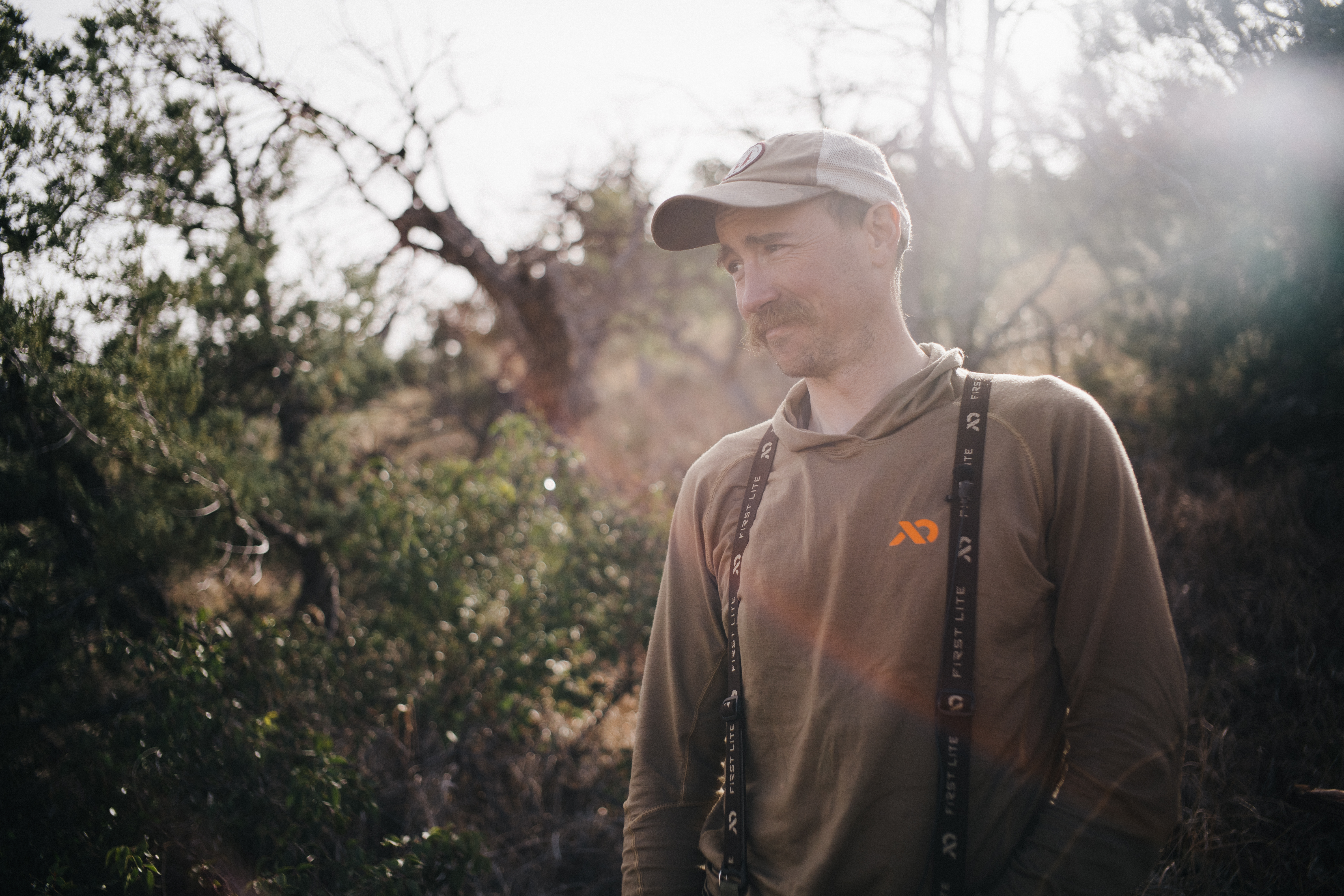
In his mind, Ryan thought like an idealist and addressed the original source of the problem: deer farms.
"If we're waving magic wands here, and people want to devote their time, energy, and personal economics to legally growing cervids, I think they should be able to do that," he said. "But I think we need some far, far stricter regulations."
Another big issue that's near the top of his list of things to address is the public land access question.
"All of this land has a tremendous value across the board," he said. He described places that he may never go, but certainly doesn't want to see paved over, or made inaccessible to people. It's vital that people educate themselves and take the steps towards preservation, and Callaghan made that a theme throughout our conversation.
Wild sheep, which he said were "absolutely piss poor at defending themselves against disease," ranked atop his concerns for the game animal facing the toughest circumstances. "That's our most at-risk big game species by far," he said. He was excited about the prospects of grizzly bears making a footprint in the lower 48, and tried to view the positives within those situations. It's all part of the job.
What about the most at-risk region in America? Interestingly enough, it was the border between the U.S. and Mexico that he brought up.
"The jaguar is going to have a real hard time making its way, running the gauntlet of the vaqueros who like to kill jaguars on sight, and through Mexico, making it into Arizona," said Callaghan. "I would think it [would be] very, very cool if the ocelot and jaguar became a common occurrence, being someone who doesn't live with them currently. And that border zone down there makes the news every once in a while, if you're paying attention. There are some things down there that could happen that could be a serious deterrent to wildlife."
That segued into talking about American wildlife migration corridors, and how genetic diversity can become so low when groups are secluded from each other because of highways, fences, and manmade structures.
Ryan said informing yourself, following calls to action that inspire you, and volunteering time are the biggest ways to make a difference on a personal level, and suggested having conversations that mean something with the people who need to hear what you have to say.
"We get a lot of thank you's for bringing those hunting and fishing access issues and regulation issues to a larger audience," Callaghan said, in reference to the live podcast tour he and the wider MeatEater team has been on. The live event barnstorming mention also applies to the greater idea behind his position as Director of Conservation.
If the right people are hearing from the right sources, we're all in a better spot.
NEXT: HOW WOULD YOU REACT TO A CHARGING GRIZZLY?
WATCH: OUTDOOR SPORTSMAN GROUP CEO SAYS TROPHY HARVESTS DON'T ALWAYS MAKE FOR BETTER TV
